Understanding the Importance of Password Security
In today's interconnected world, passwords act as the gatekeepers to our digital lives. They protect our sensitive information from falling into the wrong hands. However, weak or easily guessable passwords can leave us vulnerable to cyber threats. Therefore, it is crucial to prioritize password security and adopt measures to safeguard our online accounts.
Introducing Password Books: A Convenient Solution
Password books are physical notebooks or journals designed specifically for securely storing passwords. They provide a tangible and offline alternative to digital password managers or memorization techniques. With a password book, you can easily organize and retrieve your passwords whenever needed without relying on memory or digital devices.
How Password Books Enhance Security
While some may argue that writing down passwords is a security risk, password books, when used correctly, can significantly enhance security. Here's how:
1 Protection against memory lapses: Remembering complex passwords for multiple accounts is challenging. By using a password book, you can avoid the temptation of reusing passwords or using easily guessable ones.
2 Offline security: Unlike digital password managers that can be vulnerable to hacking and online threats, password books offer an offline and physical layer of security. They are immune to remote attacks or data breaches.
3 Reduced dependency on technology: Password books are not susceptible to technical glitches, system failures, or forgotten master passwords. They provide a reliable backup option in case of emergencies.
4 Easy access and portability: Password books are compact and portable, allowing you to carry them wherever you go. This ensures that you always have access to your passwords, even in situations where you don't have access to your digital devices.
Choosing the Right Password Book
When it comes to selecting a password book, there are a few factors to consider. Here are some key points to keep in mind:
1 Size and portability: Opt for a password book that is compact and easy to carry. You may want to choose one that fits in your bag or pocket so that you can have it with you at all times.
2 Organization and categorization: Look for a password book that offers well-structured sections or categories to help you organize your passwords efficiently. This could include sections for different types of accounts such as social media, banking, email, etc.
3 Quality and durability: Ensure that the password book you choose is made of high-quality materials that can withstand regular use. It should have sturdy pages that won't tear easily, and a durable cover to protect your passwords.
4 Security features: Some password books come with additional security features such as lockable covers or password hint pages that add an extra layer of protection to your sensitive information. Consider your personal security preferences when selecting a password book.
Setting Up Your Password Book
Once you have chosen the right password book for your needs, it's time to set it up effectively. Here are some tips to get started:
1 Create a table of contents: Dedicate the first few pages of your password book to creating a table of contents. This will help you quickly locate specific account passwords when you need them.
2 Use consistent formatting: Adopt a consistent format for entering your passwords to ensure clarity and ease of use. Include the name of the account, the username or email associated with it, and the password itself.
3 Consider using password hints: To enhance security while still being able to recall your passwords, you can create hints instead of writing down the complete password. Make sure these hints are known only to you to prevent unauthorized access.
4 Update your passwords regularly: Regularly review and update your passwords to maintain strong security. Change them at least every six months or whenever you suspect a potential breach.
Maintaining Password Book Security
While password books offer a secure way to store your passwords, it is essential to take precautions to ensure their safety. Here are some best practices for maintaining password book security:
1 Keep your password book hidden: Store your password book in a safe and discreet location. Avoid leaving it out in the open where it can be easily accessed by others.
2 Avoid sharing your password book: Treat your password book as a personal and confidential item. Avoid lending it to others or sharing its contents, even with trusted individuals.
3 Regularly backup your password book: Consider making backup copies of your password book or storing encrypted digital copies in a secure location. This will provide an extra layer of protection in case of loss or damage to the physical book.
4 Use additional security measures: Consider using a lockable box or cabinet to store your password book. This adds an extra level of physical security and prevents unauthorized access.
Benefits of Using Password Books
Using password books offers several benefits when it comes to password protection and overall online security. Let's take a look at some of these advantages:
1 Enhanced password security: Password books allow you to create unique and complex passwords for each of your accounts without the risk of forgetting them. This significantly improves the security of your online presence.
2 Offline accessibility: With a password book, you don't need an internet connection or access to digital devices to retrieve your passwords. This ensures that you can log in to your accounts even in situations where you have limited connectivity.
3 Reduced reliance on memory: By using a password book, you can alleviate the burden of memorizing numerous complex passwords. This frees up mental space and allows you to focus on other important tasks without the constant worry of forgetting passwords.
4 Backup option: Password books serve as a reliable backup option in case of emergencies or technical issues with digital password managers. If you ever find yourself locked out of your accounts, you can always rely on your password book to regain access.
5 Ease of use: Password books provide a user-friendly and intuitive way to organize and manage your passwords. With clear sections and categories, you can quickly locate the password you need without wasting time or causing frustration.
Common Misconceptions about Password Books
Despite their benefits, password books are sometimes met with skepticism. Let's address some common misconceptions and clarify the facts:
1 Misconception: Writing down passwords is inherently insecure.
2 Fact: When used correctly, password books offer a secure and offline method of storing passwords. They can be an effective solution when combined with other security measures.
3 Misconception: Password books are easily lost or stolen.
4 Fact: While there is a risk of losing a password book, you can mitigate this by keeping it in a safe and hidden location. Additionally, consider making backup copies or encrypting digital versions for added security.
5 Misconception: Digital password managers are superior to password books.
6 Fact: Digital password managers have their advantages, but they also come with potential vulnerabilities. Password books offer an offline and physical layer of security, making them a viable alternative.
7 Misconception: Password books are outdated in the era of biometrics and two-factor authentication.
8 Fact: Biometrics and two-factor authentication are valuable security measures, but they should not replace the need for strong and unique passwords. Password books can complement these measures by providing a secure and convenient storage solution.
FAQs about Password Books
Are password books safe to use?
Yes, password books can be safe to use when proper security measures are taken. Keep your password book hidden, avoid sharing its contents, and store it in a secure location.
Can password books be hacked?
Since password books are offline and not connected to the internet, the risk of hacking is minimal. However, it's important to keep the physical book secure to prevent unauthorized access.
Is it okay to write down passwords?
Writing down passwords in a password book is considered safe as long as you follow best practices. Keep the book secure and hidden, and avoid labeling it as a password book for added protection.
What should I do if I lose my password book?
If you lose your password book, take immediate action to protect your accounts. Change your passwords for all affected accounts and consider enabling two-factor authentication for added security.
Can I use a password manager instead of a password book?
While password managers can be a convenient option, they are not foolproof. Password books offer an offline and tangible alternative, providing an extra layer of security.
How often should I update my password book?
It's a good practice to review and update your password book whenever you change your passwords or suspect a potential breach. Regularly refreshing your passwords enhances security.
Conclusion
In conclusion, password books are a valuable tool for enhancing password protection and improving online security. By utilizing a password book, you can create unique and complex passwords for your accounts, reduce reliance on memory, and have offline accessibility to your passwords. Remember to choose a password book that suits your needs, maintain its security, and adopt best practices to ensure the safety of your sensitive information.








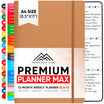

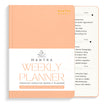



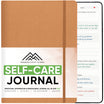
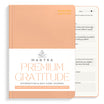
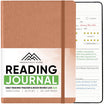
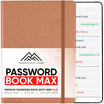
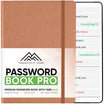




Leave a comment
All comments are moderated before being published.
This site is protected by hCaptcha and the hCaptcha Privacy Policy and Terms of Service apply.